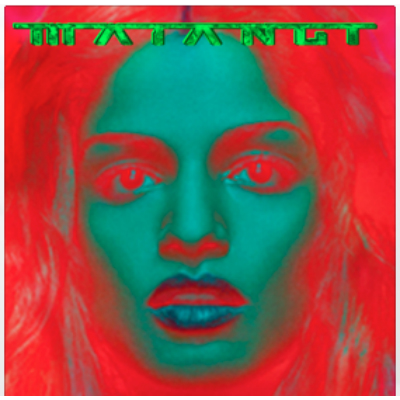Since I’ve been too busy listening to “Y.A.L.A.” on repeat to listen to anything else off Matangi — by the way, I haven’t entirely forgiven M.I.A. for that awful concert experience — I decided to round up a few of the better critiques of the pop star-rapper’s latest album. After you peruse the reviews below, you’d do well to read Ayesha A. Siddiqi’s analysis of some of the more problematic parts around music criqitues of M.I.A.’s body of work. That said, the critiques below are probably as close to fair-and-balanced as we’ll get with M.I.A. these days, anyway.
A Return to Form?
• Flavorwire’s Tom Hawking capably sums up the critical consensus on Matangi: “And, hey, Matangi! It’s taken this long to get to her new album, and it seems almost redundant to mention that it’s really pretty good — substantially better than Maya, and after a couple of listens, quite possibly on a level with Arular and Kala. It’s a pleasure to hear her rebound from the sort of lackluster record that every artist releases now and then. Matangi is a return to form, and hopefully it’ll be received as such.”
• The Guardian‘s Killian Fox writes, “The good news is that album number four is a return to form and, despite all the kerfuffle surrounding its conception, it might even be her best yet. Where Maya was oppressive, Matangi is, in large part, joyful. Somehow those cacophonic opening tracks are not only coherent but compelling too — thrilling and exuberant in a way MIA’s [sic] output hasn’t been for some time.”
• Aylin Zafar, over at BuzzFeed, had the most positive take on Matangi, writing, “Matangi brings back the energy and the cheekiness of the first two M.I.A. albums, when she was able to wink at herself. And more than anything, it’s fun. (It’s worth noting that M.I.A.’s label initially delayed the album because it was “too positive.”) She takes us through a couple different beats and tempos, all backed by a strong South Asian bhangra influence. M.I.A. played with a lot of these elements in her first two albums, along with the dub, reggae, and electronic sounds that make up her trademark sound, and that make her music stand out.”
 … Or Another Dud?
… Or Another Dud?
• “But also in 2010, an unforgettable profile in the New York Times revealed the duplicity to her image: while she spoke of staying true to her Sri Lankan roots and raising awareness of terrorism and threats to privacy, she was pampered in an upscale lifestyle,” writes Alexandra Svokos for PolicyMic. “This is not to say that we should criticize M.I.A. for becoming successful and taking advantage of her astounding rise and achievements — “we started from the bottom but Drake gets all the credit,” she accurately sings on “Matangi” — but it does mean that her priorities have shifted since Arular. Yet M.I.A. apparently doesn’t want to admit that. Instead, on Matangi, she lazily tosses clichéd social justice themes into the songs without any real meaning.”
• Divya Kumar for The Oracle lays it in, however: “M.I.A. walks on eggshells in attempting to appeal to the masses as the leader of pariahs everywhere for every cause, and her latest album is the yolky mess we’re left with.”
• “When you’re faced with an artist like M.I.A. who became so associated with making challenging, politically minded, but goddamn loudly awesome hip-hop, any lack of energy or interest on her part comes through the music very easily,” writes Idolator’s Patrick Bowman. “Matangi definitely has it’s highs, but if M.I.A. is losing passion for her own work, it’s going to be harder and harder for fans to get passionate too.”
Rohin Guha is a contributing editor at The Aerogram. Follow him on Twitter @ohrohin. Find The Aerogram on Twitter @theaerogram.

 … Or Another Dud?
… Or Another Dud?










